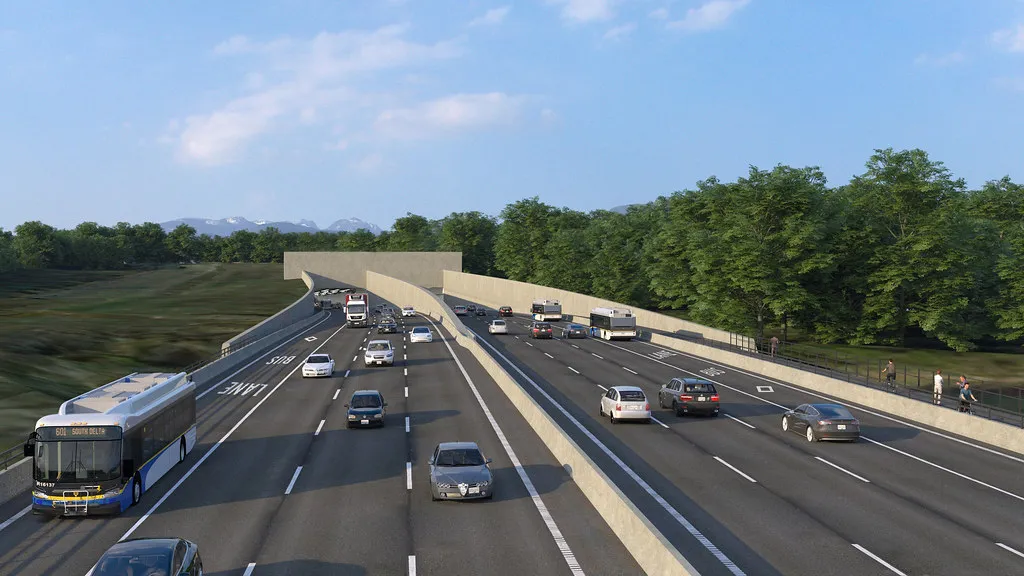Amid concerns over the efficiency of Costa Rica’s highways agency Conavi, the authority has been given more time to provide details on expansion of Route 32, according to the La Republica newspaper.
Conavi has been at loggerheads with the Treasury Inspector's Office which wants Conavi to move faster and authorise a contract for the expansion of road between Rio Frio and Limon granted to China Harbour Engineering Company.
China Harbour has been requesting further details about the US$395 million projec
March 14, 2016
Read time: 2 mins
Amid concerns over the efficiency of Costa Rica’s highways agency 2538 Conavi, the authority has been given more time to provide details on expansion of Route 32, according to the La Republica newspaper.
Conavi has been at loggerheads with the Treasury Inspector's Office which wants Conavi to move faster and authorise a contract for the expansion of road between Rio Frio and Limon granted to China Harbour Engineering Company.
China Harbour has been requesting further details about the US$395 million project, including terms and conditions, payments, expropriations, relocation of public services and possible sanctions in the event of the project being suspended.
Meanwhile, the government has moved to replace Conavi with a new National Infrastructure Institute to boost public-private partnerships. According to the El Pais newspaper, the government has submitted a draft bill in the Legislative Assembly which will now go to consultation.
The new organisation will work closely with the Ministry of Public Works and Transport to plan infrastructure projects, issue technical and procurement guidelines and oversee the contractor performance.
Alongside the creation of the new organisation, the government will also replace the Public Transport Council with a new National Public Transport Authority.
In early March 2014, the government reportedly had to pay compensation worth $28.4 million for the cancellation of a highway concession package. Compensation related to the San José-San Ramón highway concession and was being paid to the Brazilian construction company OAS, according to a report at the time by Business News Americas.
This followed a legal dispute over the project and was around $10 million less than OAS originally claimed in compensation. The 30-year concession package was cancelled last year due to opposition. There were allegations of a conflict of interest in the award of the contract as well as complaints the proposed toll fees would be too high.
The project for the $524 million project to upgrade and widen the 58km section of highway was originally to have been complete within a 30 month period.
Conavi has been at loggerheads with the Treasury Inspector's Office which wants Conavi to move faster and authorise a contract for the expansion of road between Rio Frio and Limon granted to China Harbour Engineering Company.
China Harbour has been requesting further details about the US$395 million project, including terms and conditions, payments, expropriations, relocation of public services and possible sanctions in the event of the project being suspended.
Meanwhile, the government has moved to replace Conavi with a new National Infrastructure Institute to boost public-private partnerships. According to the El Pais newspaper, the government has submitted a draft bill in the Legislative Assembly which will now go to consultation.
The new organisation will work closely with the Ministry of Public Works and Transport to plan infrastructure projects, issue technical and procurement guidelines and oversee the contractor performance.
Alongside the creation of the new organisation, the government will also replace the Public Transport Council with a new National Public Transport Authority.
In early March 2014, the government reportedly had to pay compensation worth $28.4 million for the cancellation of a highway concession package. Compensation related to the San José-San Ramón highway concession and was being paid to the Brazilian construction company OAS, according to a report at the time by Business News Americas.
This followed a legal dispute over the project and was around $10 million less than OAS originally claimed in compensation. The 30-year concession package was cancelled last year due to opposition. There were allegations of a conflict of interest in the award of the contract as well as complaints the proposed toll fees would be too high.
The project for the $524 million project to upgrade and widen the 58km section of highway was originally to have been complete within a 30 month period.







